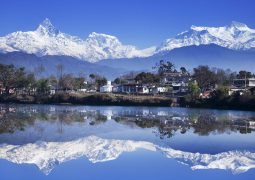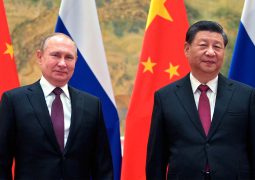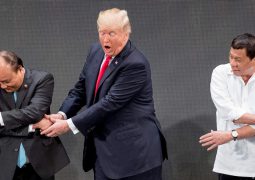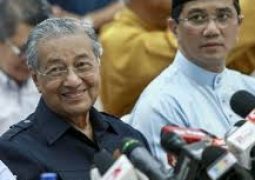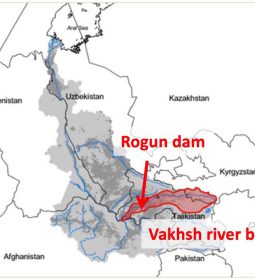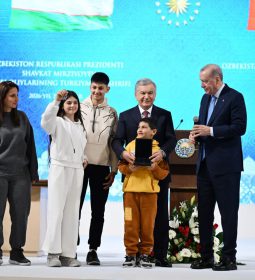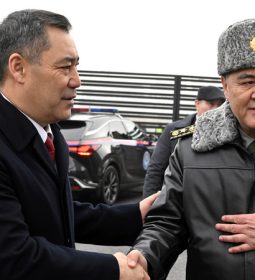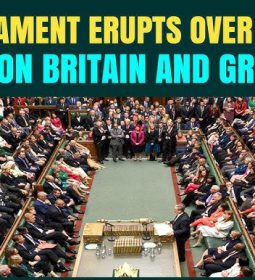Southeast Asian Nations Assess Options Amid Likely Demise of Trade Deal
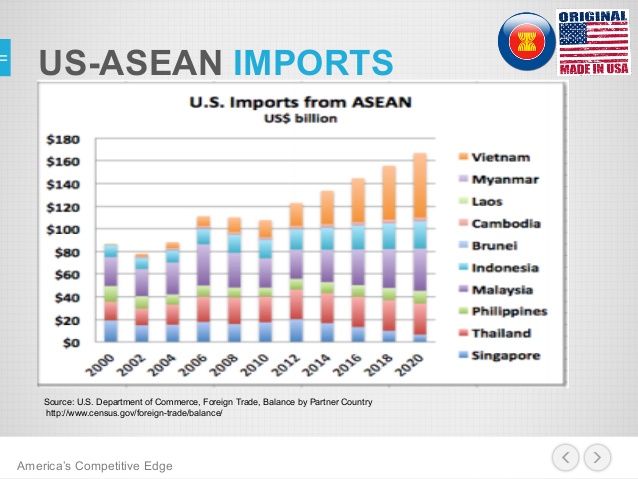
Officials agree on the need to pursue their own Asean economic plan as they ready for Donald Trump administration
BALI, Indonesia—Southeast Asian officials hunkered together Friday to assess where the region stands in the wake of global shocks, including the near-certain death of a sweeping trade deal with the U.S. following the election of Donald Trump as president.
An official of the 10-member Association of Southeast Asian Nations, under whose auspices the low-profile meeting was held, said the agenda included “recent developments in global politics” as well as “regional peace, security and stability.” Other regional officials said that extended to discussions of the South China Sea, where four Southeast Asian countries have overlapping claims with China.
An Indonesian official said Jakarta planned the meeting as a “one-off” to address a host of issues. Permanent Secretary Chee Wee Kiong of Singapore’s Ministry of Foreign Affairs described the gathering of foreign affairs officials as “informal.” No statement was issued.
Officials in attendance said they agreed on the need to press ahead with Asean’s own economic integration as a way to survive uncertain times, including the prospect of disengagement by governments in the U.S. and Europe, where anti-globalization sentiments have also been gaining traction.One Southeast Asian diplomat, who didn’t want to be identified, said the meeting on this resort island was to sound out positions in a region that has struggled for unity. The Asean countries have long positioned their bloc as a balancing point between global superpowers. Most heavily depend on China for trade, while maintaining deep security and investment ties with the U.S.
Ernest Bower, CEO of business consultancy BowerGroupAsia and a senior adviser at the Center for Strategic and International Studies in Washington, said the meeting was “clearly in response to the massive potential geopolitical impact of Trump’s victory and the clear signals he is sending that he intends to deal differently with China and Asia than his predecessors have.’’
Four of the nations attending—Vietnam, Singapore, Malaysia and Brunei—were part of the Trans-Pacific Partnership trade pact, which was a cornerstone of President Barack Obama’s pivot to the region. Others including the Philippines and Indonesia had expressed their intent to join.
Mr. Trump has vowed to cancel U.S. participation in the TPP, which the U.S. has signed but not yet ratified. To take effect, the pact requires that at least six countries representing at least 85% of the combined GDP of the 12 founding members ratify the pact within two years. Without the U.S., the 11 remaining members would not meet the GDP threshold.
Mr. Obama saw the region of more than 600 million people, with a combined economy of more than $2.5 trillion, as a counterweight to China’s rising influence, and attended annual meetings of Asean leaders to help cement the relationship. Mr. Trump has given little indication of his intentions for the region.
The Southeast Asian diplomat said that the death of the U.S.-led trade pact would leave Asian countries more likely to entertain a simpler deal shepherded by Beijing. “This will account for half the world’s population,” the official said. “He will not ignore this.”
Mr. Trump already has business ventures in Southeast Asia, signing deals last year with one of Indonesia’s wealthiest businessmen to bring Trump Hotels to the region for the first time. In the Philippines, the 56-story Trump Tower Manila is being built by a real-estate magnate who was recently appointed trade envoy to the U.S. Mr. Trump has said he is taking steps to separate himself from his businesses, although House Democrats and others have questioned whether conflicts of interest will remain.
Mr. Trump’s election comes at a critical time for Asean, which seeks to establish closer economic links and present a unified diplomatic front despite the disparity among giant members such as Indonesia, with 250 million people, and tiny but rich Singapore and Brunei.

New Philippine President Rodrigo Duterte has already sought to loosen his country’s ties to the U.S., its longtime ally, in favor of closer relations and trade with China, playing down their dispute over territory in the South China Sea.

Others seem to be standing firm. Amid news reports this week that Vietnam had begun dredging on a reef in a disputed area, a senior Vietnamese official in Hanoi denied that any work was taking place but noted that his country “has the right to do so.”
Asked about the same reports, Chinese Foreign Ministry spokesmanLu Kang said on Friday that China has “indisputable sovereignty” over the reef and adjacent waters and urged Vietnam to “refrain from complicating the situation.”
—Vu Trong Khanh in Hanoi and Te-Ping Chen in Beijing contributed to this article.
- Previous Trump Team: Same People Who Say Russia Meddled In Election Said Iraq Had WMDs Read more: http://dailycaller.com/2016/12/09/trump-team-same-people-who-say-russia-meddled-in-election-said-iraq-had-wmds/#ixzz4SUBkdJHc
- Next Will the Trump Administration Start a War with Iran?



